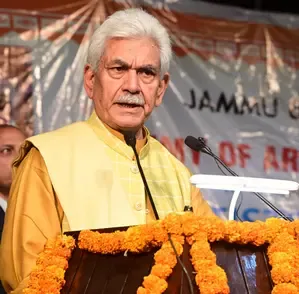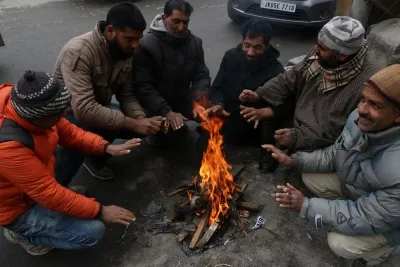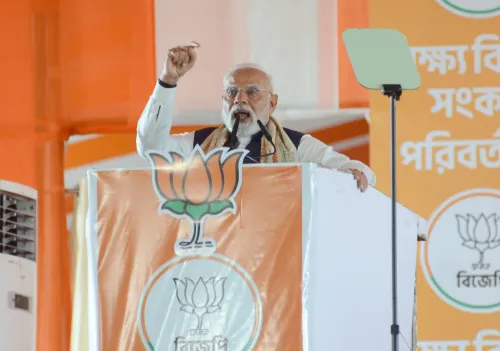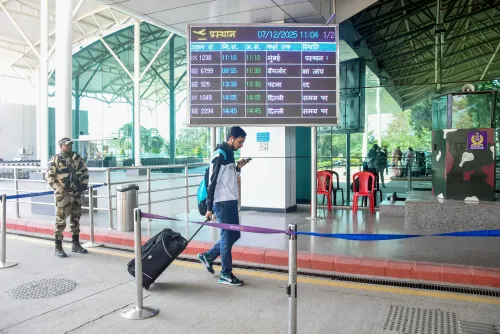Did J&K L-G Violate the Reorganisation Act with Business Rules?

Synopsis
Key Takeaways
- Transaction of business rules are crucial for administrative governance.
- The TBR was returned due to contraventions of the Reorganisation Act.
- The Lt Governor holds significant powers in the Union Territory.
- The relationship between the elected government and the Lt Governor remains contentious.
- Adherence to constitutional mandates is essential for effective governance.
Srinagar, May 4 (NationPress) - The Lt Governor of Jammu and Kashmir, Manoj Sinha, has sent back the transaction of business rules (TBR) file to Chief Minister Omar Abdullah, citing that it is "in contravention of the Reorganisation Act 2019."
According to sources, the file was submitted for approval to the L-G in March but has since been returned. The L-G has inquired whether the TBR was formulated in accordance with established procedures, as it must align with the Reorganisation Act 2019.
“The file was received back from the Raj Bhawan without approval a few days ago,” official sources indicated.
After its formulation, the TBR received approval from the Jammu and Kashmir cabinet before being sent to the Raj Bhawan, sources mentioned.
Notably, senior advocate Rohinton Fali Nariman was part of the committee established by the J&K government to draft the TBR.
The TBR stipulates that all postings and transfers, including those of IAS officers, must receive approval from the J&K Cabinet.
“The Hon’ble Lt Governor returned the file because the proposals contradict the Reorganisation Act established by Parliament. No administrative regulation or rule created by the state or Union government can draft procedures that oppose a law passed by Parliament,” sources clarified.
Section 53 of the J&K Reorganisation Act explicitly states that the Lt Governor shall act at his discretion regarding All India Services and the Anti-Corruption Bureau, as well as matters outside the Legislative Assembly's authority or related to judicial functions.
“The TBR seems to assert powers associated with statehood in the absence of actual statehood. Provisions of the J&K Reorganisation Act have been misinterpreted, as no rules can extend beyond the written provisions of an Act of Parliament,” sources added.
The government led by Omar Abdullah has expressed concerns regarding the appointment of IAS officers in key positions across various government departments within the union territory.
Responsibilities such as police, law and order, the anti-corruption bureau, fire services, and prisons, along with the appointment of the advocate general, fall under the authority of the Lt Governor.
“The TBR submitted for approval sought to involve the elected government in the appointments and transfers of deputy commissioners and executive magistrates, which are directly related to law and order. This is clearly against the provisions of the Reorganisation Act,” the sources stated.










